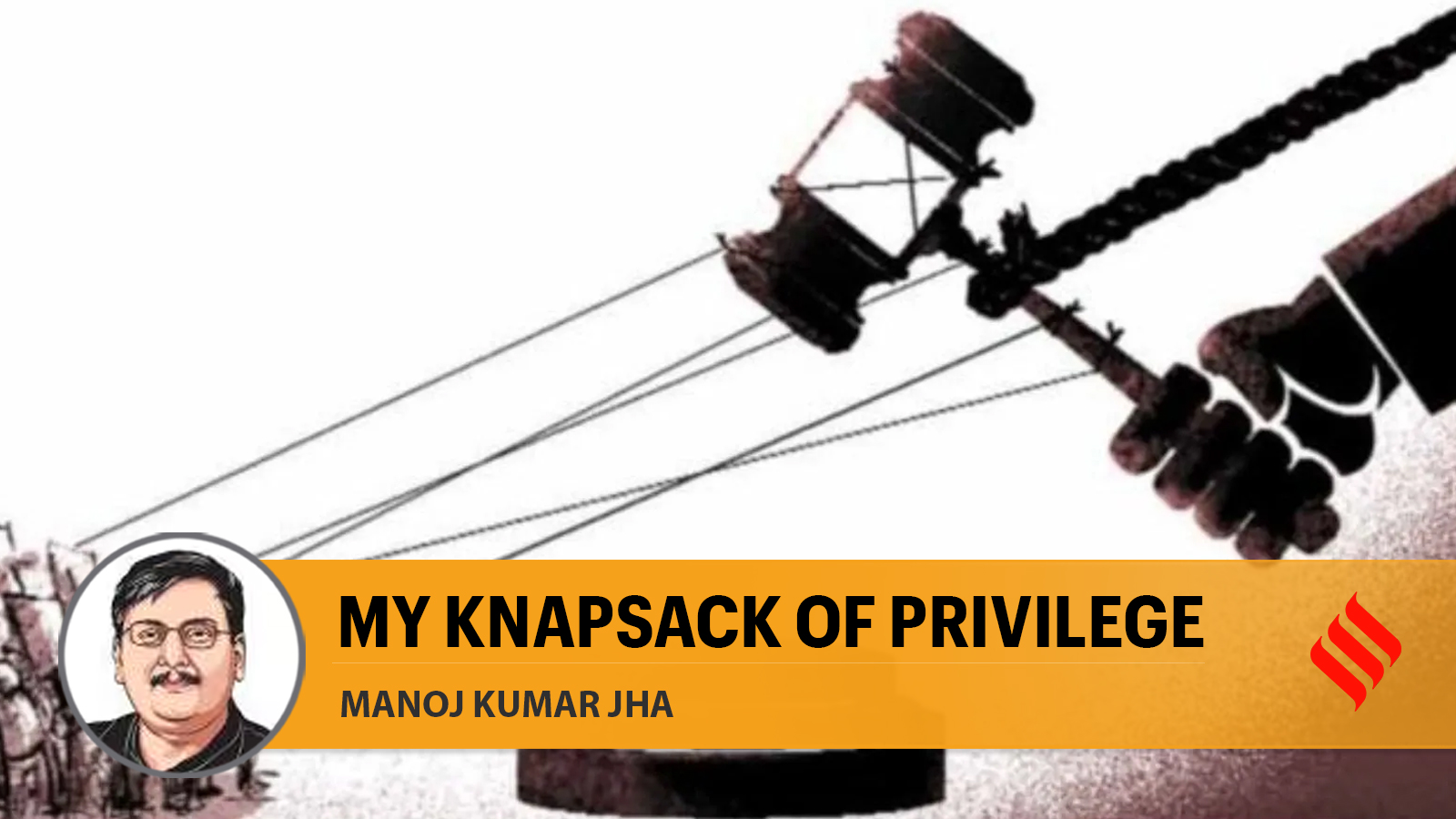Often celebrated for its diversity and democratic values, India continues to grapple with deep-seated inequalities rooted in caste, gender, and religion. While diversity is a source of pride, it is equally important to acknowledge that our social identities are arranged into hierarchies from birth. Our gender, our parents’ caste and occupation, their religion, and the location of our birth, determine, to a large extent, the advantages we have over others.
These privileges manifest in better access to education, nutrition, healthcare and economic resources leading to comparatively better work prospects and social standing. This is not only an issue for India. Around the world, from South Africa to the United States, addressing the issue of privilege has been central to the debates and movements for social and economic justice.
In discussions on social movements at the university, one of the many books I used to teach was Peggy McIntosh’s White Privilege: Unpacking the Invisible Knapsack. McIntosh argues that White people in the US receive certain unearned benefits and privileges by virtue of their skin colour. They carry these benefits and privileges in an “invisible knapsack” that removes barriers and opens doors that remain closed to others without a knapsack.
In Annihilation of Caste, B R Ambedkar critiqued the caste system as a rigid hierarchy that not only dehumanises those at the bottom but also normalises the privileges of those at the top. This process is compounded by the ways in which caste and gender intersect to exacerbate inequalities, making certain groups doubly disadvantaged. Dismantling such a system, Ambedkar insists, requires a fundamental shift in how we view privilege.
Understanding how unearned privileges — both personal and systemic — shape our lives is the first step towards dismantling hierarchies and building a more just society. Upper-caste individuals, men, and those belonging to religious majorities enjoy unearned benefits that shape their experiences in ways they often fail to recognise. For those who have never experienced marginalisation, privilege often feels like the norm — the invisible knapsack they do not see. The challenge is to uncover and confront these hidden privileges. What would it take for Indian society to recognise these hierarchies?
Firstly, it requires a willingness to engage with the experiences of marginalised groups. Listening without interrupting or undermining the validity of their narratives is essential. The everyday ease with which privileged individuals navigate life — whether in terms of access to education, healthcare, or professional opportunities — needs to be recognised as a systemic advantage rather than a personal accomplishment.
Second, active learning and unlearning are required. Engaging with anti-caste literature, feminist critiques, and works that challenge religious majoritarianism provides a pathway to understanding the mechanisms of privilege. Texts by Dalit, women and minority writers, thinkers and activists offer powerful critiques of systems that perpetuate inequality. This intellectual engagement needs to be sustained to foster critical reflection.
Much of the perpetuation of privilege happens within families and in social circles. Conversations about caste, gender, and religious hierarchies must begin within these intimate spaces. However, this process must not end at discussions. Mentorship and active support for individuals from marginalised backgrounds can play a vital role in addressing disparities born out of systemic oppression. This mentorship, however, must be approached carefully to avoid paternalistic tendencies. It is easy for those from privileged backgrounds to fall into the trap of adopting a “saviour” mindset. Lessons from global social movements, particularly anti-racist struggles, emphasise that true solidarity does not involve rescuing those who are marginalised but standing with them and amplifying their voices.
While individual introspection is necessary, lasting change must occur at the institutional level. Educational institutions, workplaces and legal systems are key sites where privilege operates and is reproduced. For meaningful reform, privileged groups must advocate for policies that promote diversity, equity, and inclusion, not as token gestures, but as fundamental changes to the fabric of institutions. This can involve pushing for the correct application of affirmative action policies, demanding representative leadership, and creating curricula that reflect the reality and plurality of Indian society. Recruitment practices in academia and other workplaces need to dismantle networks of privilege that disadvantage marginalised groups.
The suicide of Rohith Vemula in 2016 was a stark reminder of how deeply entrenched caste hierarchies continue to shape opportunities and life experiences. Yet, despite occasional moments of national reckoning, the introspection necessary to bring about systemic change remains limited.
Pointing out a person’s privilege is not an accusation. It is an opportunity to question the structures that perpetuate inequality and work towards their dismantling. As Ambedkar pointed out, the privileged few must take responsibility for their role in upholding systems of oppression.
As an individual, teacher, and political leader, I am painfully aware of the invisible knapsack I carry. I consider it my duty to carry out conversations around privilege within the insular social and institutional spaces of our societies. It’s a conversation that those with unearned privileges need to have with urgency, and I daresay, a sense of shame. The demand for the caste census and proportionate representation is part of such conversations.
The opposition to the relentless attacks on reservations — carving out exceptions or lateral entries — is part of such conversations. Vocal and loud protests against economic inequalities are part of such conversations. Until these conversations are not commonplace, we must keep checking our privilege.
The writer is a Rashtriya Janata Dal Rajya Sabha MP. Views are personal.



